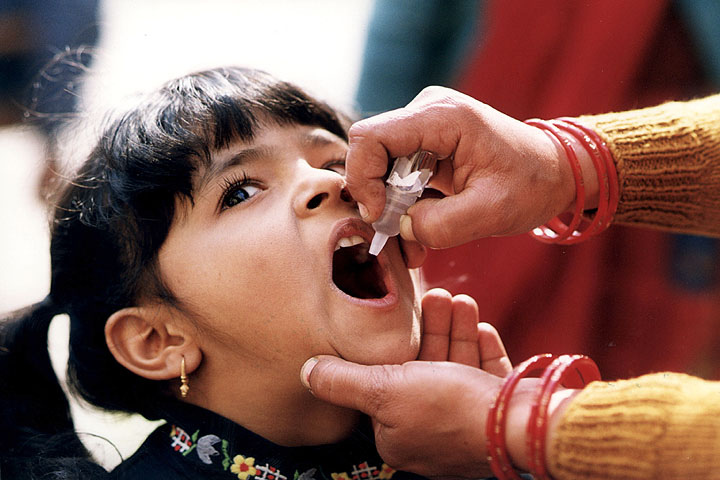Here are 16 reasons why black seed oil is called the “remedy for everything but death”
03/27/2023 / By Ethan Huff

An ever-growing body of research shows that Nigella sativa, also known as black seed, is a powerful “remedy for everything but death,” as they used to say about this medicinal food back in ancient times.
One of nature’s most powerful healing remedies, black seed, and specifically the oil thereof, has been studied extensively as of late for its ability to fight all sorts of nasty conditions, including MRSA (Methicillin-resistant Staphylococcus aureus), Helicobacter pylori infection, epilepsy, high blood pressure, asthma, acute tonsillopharyngitis, cancer, and even opiate addiction and withdrawal.
To remain aligned with federal regulations, black seed oil cannot legally be touted as something that diagnoses, treats, cures, or prevents any disease, otherwise it becomes a “drug.” Because of this, all of the claims made in this article are for educational purposes only, stemming from published, peer-reviewed science.
“This humble but immensely powerful seed kills MRSA, heals the chemical weapon-poisoned body, stimulates regeneration of the dying beta cells within the diabetic’s pancreas, and yet too few even know it exists,” reads an article summarizing all of the known peer-reviewed and published research on black seed oil.
Can Nigella sativa help you and your family? Have a look at the science
Have a look at the following 16 additional potential health benefits associated with black seed oil, as demonstrated in published scientific literature (once again, the following is what science has found – these are not health claims). See published scientific sources below:

1) Prevents radiation damage:
Nigella sativa oil (NSO) and its active component thymoquinone may create a shield of protection around brain tissue affected by radiation-induced nitrosative stress.
2) Protects against heart attack damage:
Thymoquinone extract derived from Nigella sativa may protect against damage in the event of a heart attack.
3) Prevents morphine dependence and toxicity:
An alcohol extract of black seed may reduce morphine-associated conditioned place preference, a sign of morphine intoxication, dependence, and tolerance.
4) Prevents diabetes-associated kidney damage:
Thymoquinone extract may protect against diabetic nephropathy.
5) Prevents postsurgical adhesions:
Peritoneal surfaces covered with Nigella sativa oil after peritoneal trauma may help decrease peritoneal adhesion formation.
6) Prevents Alzheimer’s-associated neurotoxicity:
Thymoquinone extract from black seed may prevent neurotoxicity and A-beta-1-40-induced apoptosis in the cells of diabetics.
7) Suppresses breast cancer growth:
Taking black seed extract may inhibit tumor growth and induce programmed cell death (apoptosis) in breast cancer patients.
8) Shows anti-psoriasis properties:
Alcohol extract of Nigella sativa seeds may stop psoriasis, which is also how it was used in ancient traditional medicine.
9) Prevents brain pathology associated with Parkinson’s disease:
Thymoquinone extract may help protect cultured neurons against alpha-SN-induced synaptic toxicity, a type of pathology observed in the brains of patients with Parkinson’s and dementia.
10) Destroys highly aggressive glioblastoma brain cancer cells:
Brain cancer patients may find healing with thymoquinone extract.
11) Kills leukemia cells:
Nigella sativa extract may induce mitochondria-mediated apoptosis in acute lymphoblastic leukemia cases.
12) Suppresses liver cancer growth:
Thymoquinone may prevent chemically induced cancers of the liver.
13) Prevents diabetic pathologies:
A water and alcohol extract of black seed at low doses may help to lower blood sugar levels while providing an ameliorative effect on the regeneration of pancreatic islets, suggesting high therapeutic value in the management of diabetes mellitus.
14) Suppresses cervical cancer cell growth:
Thymoquinone derived from Nigella sativa may provide anti-proliferative, apoptotic, and anti-invasive properties against cervical cancer cells.
15) Prevents lead-induced brain damage:
To avoid the brain-damaging effects of lead exposure, Nigella sativa might do the trick.
16) Kills oral cancer cells:
Programmed oral cancer cell death may occur when consuming a thymoquinone extract derived from black seed.
There is also evidence to suggest that Nigella sativa is a powerful remedy against the Wuhan coronavirus (Covid-19) as well.
Scientific sources, via TheEpochTimes.com article linked below:
[1] Adem Ahlatci, Abdurahman Kuzhan, Seyithan Taysi, Omer Can Demirtas, Hilal Eryigit Alkis, Mehmet Tarakcioglu, Ali Demirci, Derya Caglayan, Edibe Saricicek, Kadir Cinar. Radiation-modifying abilities of Nigella sativa and Thymoquinone on radiation-induced nitrosative stress in the brain tissue. Phytomedicine. 2013 Nov 21. pii: S0944-7113(13)00432-7. doi: 10.1016/j.phymed.2013.10.023. [Epub ahead of print]
[2] Mohammad Akram Randhawa, Mastour Safar Alghamdi, Subir Kumar Maulik. The effect of thymoquinone, an active component of Nigella sativa, on isoproterenol induced myocardial injury. Pak J Pharm Sci. 2013 Nov;26(6):1215-9.
[3] Milad Anvari, Atefeh Seddigh, Mohammad Naser Shafei, Hassan Rakhshandeh, Amir Hossein Talebi, Mohammad Reza Tahani, S Mohsen Saeedjalali, Mahmoud Hosseini. Nigella sativa extract affects conditioned place preference induced by morphine in rats. 2012 Oct;32(2):82-8. doi: 10.4103/0257-7941.118537.
[4] Ola M Omran. Effects of Thymoquinone on STZ-induced Diabetic Nephropathy: An Immunohistochemical Study. Ultrastruct Pathol. 2013 Oct 17.
[5] Ahmet Sahbaz, Firat Ersan, Serdar Aydin. Effect of Nigella sativa oil on postoperative peritoneal adhesion formation. J Obstet Gynaecol Res. 2013 Oct 7. doi: 10.1111/jog.12172.
[6] Norsharina Ismail, Maznah Ismail, Musalmah Mazlan, Latiffah Abdul Latiff, Mustapha Umar Imam, Shahid Iqbal, Nur Hanisah Azmi, Siti Aisyah Abd Ghafar, Kim Wei Chan. Thymoquinone Prevents?-Amyloid Neurotoxicity in Primary Cultured Cerebellar Granule Neurons. 2013 Nov;33(8):1159-69. doi: 10.1007/s10571-013-9982-z. Epub 2013 Oct 8.
[7] Chern Chiuh Woo, Annie Hsu, Alan Prem Kumar, Gautam Sethi, Kwong Huat Benny Tan. Thymoquinone Inhibits Tumor Growth and Induces Apoptosis in a Breast Cancer Xenograft Mouse Model: The Role of p38 MAPK and ROS. 2013 Oct 2;8(10):e75356. doi: 10.1371/journal.pone.0075356. PMID: 24098377
[8] Shashi Rajput, B N Prashanth Kumar, Kaushik Kumar Dey, Ipsita Pal, Aditya Parekh, Mahitosh Mandal. Molecular targeting of Akt by thymoquinone promotes G1 arrest through translation inhibition of cyclin D1 and induces apoptosis in breast cancer cells. 2013 Nov 13;93(21):783-90. doi: 10.1016/j.lfs.2013.09.009. Epub 2013 Sep 15. PMID: 24044882
[9] Lalitha Priyanka Dwarampudi, Dhanabal Palaniswamy, Muruganantham Nithyanantham, P S Raghu. Antipsoriatic activity and cytotoxicity of ethanolic extract of Nigella sativa seeds. 2012 Oct;8(32):268-72. doi: 10.4103/0973-1296.103650. PMID:24082629
[10] A H Alhebshi, A Odawara, M Gotoh, I Suzuki. Thymoquinone protects cultured hippocampal and human induced pluripotent stem cells-derived neurons against?-synuclein-induced synapse damage. Neurosci Lett. 2013 Sep 27. pii: S0304-3940(13)00873-2. doi: 10.1016/j.neulet.2013.09.049. PMID: 24080376
[11] Ira O Racoma, Walter Hans Meisen, Qi-En Wang, Balveen Kaur, Altaf A Wani. Thymoquinone inhibits autophagy and induces cathepsin-mediated, caspase-independent cell death in glioblastoma cells. 2013 Sep 9;8(9):e72882. doi: 10.1371/journal.pone.0072882. PMID: 24039814
[12] Landa Zeenelabdin Ali Salim, Syam Mohan, Rozana Othman, Siddig Ibrahim Abdelwahab, Behnam Kamalidehghan, Bassem Y Sheikh, Mohamed Yousif Ibrahim. Thymoquinone induces mitochondria-mediated apoptosis in acute lymphoblastic leukaemia in vitro. . 2013 Sep 12;18(9):11219-40. doi: 10.3390/molecules180911219. PMID: 24036512
[13] Subramanian Raghunandhakumar, Arumugam Paramasivam, Selvam Senthilraja, Chandrasekar Naveenkumar, Selvamani Asokkumar, John Binuclara, Sundaram Jagan, Pandi Anandakumar, Thiruvengadam Devaki. Thymoquinone inhibits cell proliferation through regulation of G1/S phase cell cycle transition in N-nitrosodiethylamine-induced experimental rat hepatocellular carcinoma. 2013 Oct 23;223(1):60-72. doi: 10.1016/j.toxlet.2013.08.018. Epub 2013 Sep 3. PMID:24012840
[14] Samad Alimohammadi, Rahim Hobbenaghi, Javad Javanbakht, Danial Kheradmand, Reza Mortezaee, Maryam Tavakoli, Farshid Khadivar, Hamid Akbari. Protective and antidiabetic effects of extract from Nigella sativa on blood glucose concentrations against streptozotocin (STZ)-induced diabetic in rats: an experimental study with histopathological evaluation. PMID: 23947821
[15] Cagri Sakalar, Merve Yuruk, Tugba Kaya, Metin Aytekin, Salih Kuk, Halit Canatan. Pronounced transcriptional regulation of apoptotic and TNF-NF-kappa-B signaling genes during the course of thymoquinone mediated apoptosis in HeLa cells. Mol Cell Biochem. 2013 Nov;383(1-2):243-51. doi: 10.1007/s11010-013-1772-x. Epub 2013 Aug 14.PMID: 23943306
[16] Khaled Radad, Khaled Hassanein, Mubarak Al-Shraim, Rudolf Moldzio, Wolf-Dieter Rausch. Thymoquinone ameliorates lead-induced brain damage in Sprague Dawley rats. PMID: 23910425
[17] Ehab Abdelfadil, Ya-Hsin Cheng, Da-Tian Bau, Wei-Jen Ting, Li-Mien Chen, Hsi-Hsien Hsu, Yueh-Min Lin, Ray-Jade Chen, Fu-Jenn Tsai, Chang-Hai Tsai, Chih-Yang Huang. Thymoquinone induces apoptosis in oral cancer cells through p38? inhibition
Sources for this article include:
Submit a correction >>
Tagged Under:
alternative medicine, anticancer, black seed, brain health, food cures, food is medicine, healing, natural cures, natural health, natural medicine, nigella sativa, phytonutrients, prevent diabetes, remedies, thymoquinone
This article may contain statements that reflect the opinion of the author




















